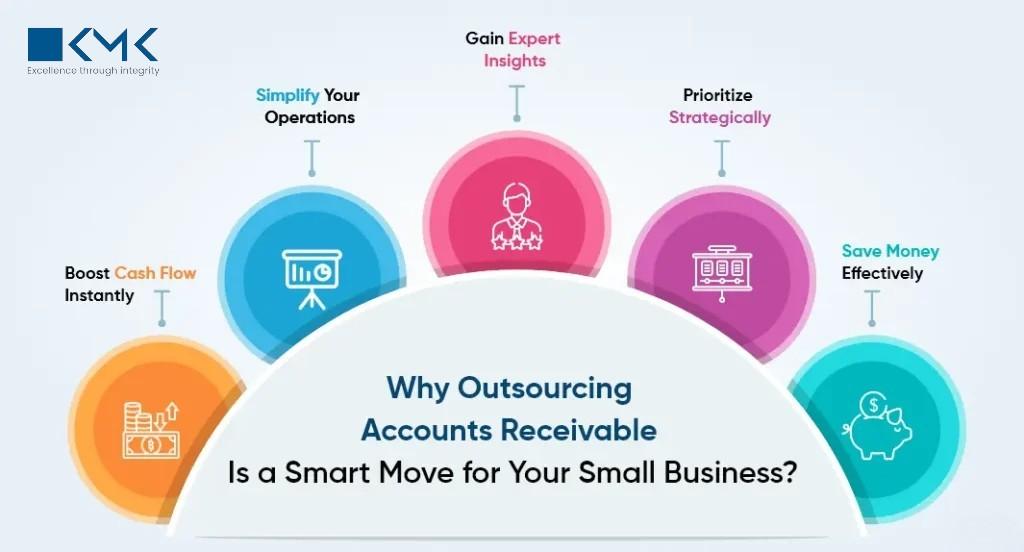Every industry in the U.S. has unique financial challenges, and accounts receivable (AR) management is no exception. From healthcare providers dealing with insurance reimbursements to retailers juggling seasonal cash flow, efficient AR processes are crucial for business survival. Increasingly, U.S. companies are turning to outsourced accounts receivable services to address these challenges. But how do outsourced solutions adapt to different industries? Let’s take a closer look.
Why Industry-Specific AR Solutions Matter
Accounts receivable is not a “one-size-fits-all” process. Each industry comes with:
-
Different billing cycles (weekly, monthly, or project-based).
-
Varied compliance requirements (HIPAA, SOX, PCI DSS, etc.).
-
Unique customer interactions (patients, clients, or consumers).
Generic AR approaches often fail to capture these nuances. By tailoring services to industry needs, outsourcing providers ensure better collections, stronger compliance, and improved customer satisfaction.
Healthcare: Managing Complex Billing Cycles
In healthcare, delayed reimbursements and insurance claim denials often disrupt cash flow. Providers also face strict HIPAA compliance requirements. In-house teams may struggle with the volume of claims and documentation.
How outsourcing helps:
-
Specialized AR providers handle claim submissions, denials, and patient billing.
-
They bring expertise in healthcare regulations and insurance processes.
-
Outsourcing reduces administrative burden, letting providers focus on patient care.
For hospitals, clinics, and dental practices, outsourcing AR can mean faster reimbursements and improved compliance.
Retail and E-commerce: Handling High Transaction Volumes
U.S. retailers face seasonal spikes, diverse payment methods, and high transaction volumes. Inefficient AR processes lead to cash flow bottlenecks and poor customer experiences.
How outsourcing helps:
-
Automated invoicing and payment reminders streamline collections.
-
Providers manage disputes professionally, preserving customer relationships.
-
Scalable solutions handle seasonal surges without extra hiring.
Retailers can improve liquidity while focusing on inventory and customer engagement.
Manufacturing: Managing Long Credit Cycles
Manufacturers often deal with extended payment terms, bulk orders, and multiple stakeholders in the supply chain. Cash flow challenges can arise when customers delay payments.
How outsourcing helps:
-
AR partners track overdue invoices and follow up consistently.
-
Providers offer credit risk assessments to reduce defaults.
-
Reports help manufacturers negotiate better payment terms with customers.
This ensures steady cash flow and supports ongoing production without interruptions.
Professional Services: Reducing Payment Delays
Consultants, law firms, and marketing agencies often bill clients after project completion. Delayed payments can impact their ability to pay staff and vendors on time.
How outsourcing helps:
-
Providers ensure prompt invoicing and structured follow-ups.
-
Customized communication strategies maintain strong client relationships.
-
AR teams deliver reporting on outstanding invoices for better forecasting.
For service-based firms, outsourcing reduces administrative burden while safeguarding client trust.
Technology and SaaS: Managing Subscription Models
Tech companies and SaaS providers rely on recurring revenue models. Late or failed payments from subscribers can cause churn and impact growth.
How outsourcing helps:
-
Automated systems handle recurring invoices and renewals.
-
AR partners flag failed payments and initiate quick recovery actions.
-
Advanced analytics predict churn risks and customer payment behavior.
This ensures a steady revenue stream while improving customer retention.
Construction: Tracking Project-Based Payments
Construction companies often operate on milestone-based payments, making receivables complex. Delayed payments can impact ongoing projects and contractor payments.
How outsourcing helps:
-
AR specialists track progress-based billing schedules.
-
They manage lien rights, compliance documents, and collections.
-
Cash flow forecasting tools help contractors plan for long projects.
This allows construction firms to manage large projects without financial disruptions.
Finance and Insurance: Meeting Strict Compliance Standards
Financial institutions and insurance companies face tight regulations when managing AR. Accuracy, compliance, and timeliness are critical.
How outsourcing helps:
-
AR providers ensure compliance with U.S. financial regulations.
-
Automated processes reduce human error in billing and collections.
-
Detailed reports give CFOs visibility into receivables.
Outsourcing reduces risk while maintaining high accuracy in financial operations.
Key Benefits Across Industries
While each sector has its nuances, outsourced AR delivers common advantages for all industries:
-
Faster collections and stronger cash flow.
-
Lower overhead costs compared to in-house teams.
-
Access to advanced technology without heavy investments.
-
Scalability to handle seasonal or project-based fluctuations.
-
Improved customer experience with professional communication.
Choosing the Right Outsourcing Partner
For U.S. businesses, the key is selecting a provider with proven industry expertise. Before outsourcing AR, companies should ask:
-
Do they understand compliance rules specific to our industry?
-
Can their technology integrate with our existing systems?
-
Do they offer reporting and insights that align with our business goals?
By aligning with the right partner, firms can transform receivables management into a strategic advantage.
Final Thoughts
Outsourcing accounts receivable is not just about cutting costs—it’s about finding tailored solutions that fit each industry’s needs. Whether it’s a hospital managing insurance claims, a retailer scaling during holiday peaks, or a SaaS provider tracking recurring subscriptions, outsourcing ensures better efficiency, compliance, and customer care.
By choosing to outsource accounts receivable services, U.S. businesses gain access to specialized expertise, advanced tools, and scalable support. In today’s competitive environment, industry-specific AR solutions are the key to stronger financial performance and long-term growth.



